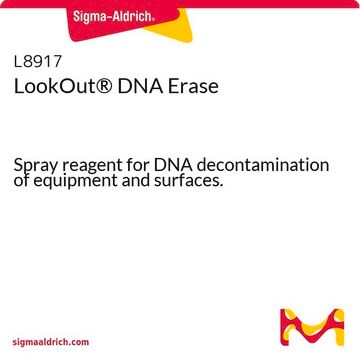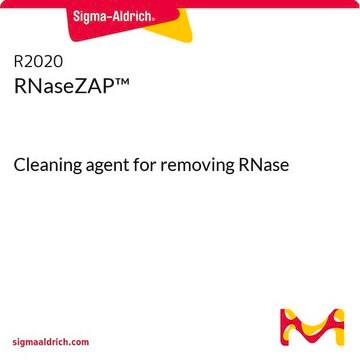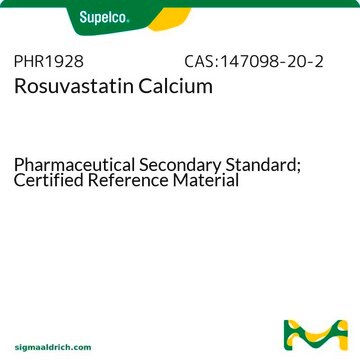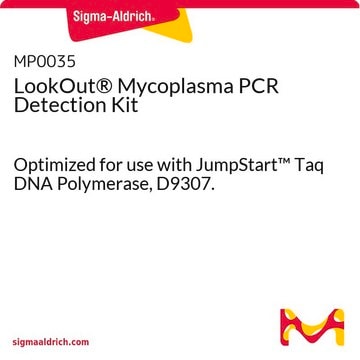43944
DNA decontamination reagent
for removal of DNA on lab equipment
Synonym(s):
DNA AWAY
Sign Into View Organizational & Contract Pricing
All Photos(1)
About This Item
UNSPSC Code:
12352200
NACRES:
NA.52
Recommended Products
General description
DNA Decontamination Reagent is a ready-to-use surfactant that removes DNA from lab equipment. Suitable for PCR equipment, glassware, plastic, and stainless steel lab surfaces.
Application
DNA decontamination reagent has been used to remove DNA from laminar flow cabinet before bacterial artificial chromosome- array comparative genomic hybridization (BAC aCGH) and single nucleotide polymorphism (SNP) array protocols.
Caution
Gloves should be worn when handling this product. DNA Decontamination Reagent is alkaline in nature and will cause irritation if prolonged contact with the skin is allowed. In case of contact with eyes, immediately flush with water for fifteen minutes and contact a physician. If swallowed, Do not induce vomiting. Give plenty of water and contact a physician immediately.
Other Notes
Do not use DNA Decontamination Reagent on aluminium, soft metal or gaskets and seals. This product is not intended as reactant. Do not add to reaction.
related product
Product No.
Description
Pricing
Storage Class Code
12 - Non Combustible Liquids
WGK
nwg
Flash Point(F)
Not applicable
Flash Point(C)
Not applicable
Personal Protective Equipment
dust mask type N95 (US), Eyeshields, Gloves
Certificates of Analysis (COA)
Search for Certificates of Analysis (COA) by entering the products Lot/Batch Number. Lot and Batch Numbers can be found on a product’s label following the words ‘Lot’ or ‘Batch’.
Already Own This Product?
Find documentation for the products that you have recently purchased in the Document Library.
Customers Also Viewed
Hamish C L Yau et al.
Scientific reports, 11(1), 21542-21542 (2021-11-04)
Washed textiles can remain malodorous and dingy due to the recalcitrance of soils. Recent work has found that 'invisible' soils such as microbial extracellular DNA (eDNA) play a key role in the adhesion of extracellular polymeric substances that form matrixes
Our team of scientists has experience in all areas of research including Life Science, Material Science, Chemical Synthesis, Chromatography, Analytical and many others.
Contact Technical Service











![Water, PCR Grade liquid, pkg of 25 mL (03315959001 [1 x 25 ml]), pkg of 25 mL (03315932001 [25 x 1 ml]), pkg of 100 mL (03315843001 [4 x 25 ml])](/deepweb/assets/sigmaaldrich/product/images/326/208/bac83eed-3c88-4738-b4b5-50d3b223dd1c/640/bac83eed-3c88-4738-b4b5-50d3b223dd1c.jpg)



